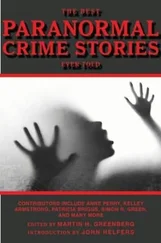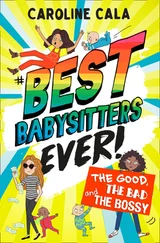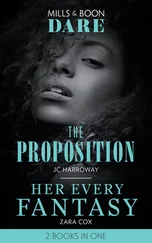Ow, she said, I mean fuck. She shut her eyes tight because it hurt and because she didn’t realize that with all the water running down her face he couldn’t tell she was crying so she was safe.
She shifted to her good foot and hopped. She landed, wobbled, steadied herself, hopped again. David slid a hand under her arm, his other behind her knees. He lifted her and carried her through the rain like a husband with a wife or a monster with a cherished victim. He carried her to the nearest house that had an overhang. The sudden freedom from the rain was cold and thrilling. He helped her sit, then knelt before her. He took her wounded foot into his hands. She was sitting in a puddle but there was nothing they could do about that. The whole world was a river that day, rising: taking and bringing things. He cleaned her foot as best he could in the puddle, wiping away the shiny trickle of blood that flowed from the cut on her sole. He suckled. The blood was metallic; his mouth did not even fill with it. It wasn’t a bad cut, really.
I think it’s out, she said. You didn’t swallow it?
I don’t know, he said. It was really small.
Is that okay? I mean will something happen to you?
I didn’t think about that, he said.
His selflessness touched her. She considered what that might mean. This tender moment was ending but they’d always have it.
They stepped back out into the rain. Estrella hobbled, David walked. The day had been good and it was still cresting. They had shared a victory and lived by their principles, especially those of solidarity and mutual aid. The store was open. The beer was cold. There would be time later for regret and whatever the bassist thought, but right then they were still free. A pair of real anarchists, they drank on the street as they strolled home even though it was broad daylight and still raining.
Iturned twelve on August 9, 1995, a few weeks before the start of the new school year and the same day that Jerry Garcia was dying in California, not that I knew it then. My parents had decided to have my party at the house, in our backyard: Slip ’n Slide, water balloons, the garden hose. I remember being worried it was too babyish but actually we had a pretty good time. Fun in the sun, you know? A real South Florida birthday. A Winn-Dixie sheet cake with a sports theme. I remember all of this so vividly, and can see myself living it, as if then-me is somebody else and now-me is a camera capturing him. Thirteen candles are lit (one to grow on) and I’m leaning in over the cake, waiting for the song to wrap up so I can blow them out. My best friend Kenny Beckstein and my dad are on either side of me, and the rest of the kids are clustered loosely around us, like apostles. My dad’s smile is not forced, exactly, but you can see it’s strained. He and Mom had been arguing about something earlier. Kenny’s face is an altogether different story. He’s got this look of pure adoration, ecstasy really, like he’s never loved anything so much as he loves me right then.
I met Kenny in first grade. He was fat and I was a runt, a quick crier. We traded being last one picked for whatever the game of the day was, unless it was dodge ball, because I was so hard to hit. He and his big sister Angela were Irish twins — eleven months between them, and I was six months older than Kenny, so really it was like we were all the same age, but because of how the school calendar fell she was a grade ahead of us, and had gone off to the middle school last year. But now we would be middle schoolers too. Sixth grade.
But middle school wasn’t good to Kenny, who still brought a dweeby plastic thermos of grape juice with his lunch instead of a soda can. He got knocked around in the locker room. Cheeks flushed, eyes glistening, relaxed-fit jeans held up out of reach in that jock asshole Zak Sargent’s raised fist. Zak was in Angela’s grade. He was a golden boy, a terrorist. I tried to teach Kenny to hold his own, but the truth was that what I knew how to do was be invisible, and this made me angry — at myself because it was all I could do, at Kenny because it was the one thing he couldn’t. I lashed out at him, picked fights over anything stupid, said I was coming over and then didn’t come. By winter break I’d stopped talking to him altogether.
I told myself that Kenny languished on the one rung of the social ladder I knew I was above, though in order to believe this I had to first accept the increasingly dubious premise that either of us was on that ladder at all.
In seventh grade an invitation came in the mail: his bar mitzvah. His parents must have forced him. I was lucky to have checked the mail myself that day, because if my parents had seen it they would surely have forced me.
Kenny spent the summer after eighth grade with his aunt and uncle. Their kids were a little older and they had a summer place way up in Maine.
I saw him on the first day of ninth grade — high school, the real big time — down the hall from me, in motion. He was taller, and not so zitty as he’d been. He was lean now, hair the color of wheat and shaggy about his ears. We saw each other, thirty feet of emptying hall between us. The bell was ringing — a digital bell that sounded like some bag of microwave popcorn was ready. The linoleum floors were freshly buffed for the new school year and the light flung down by the fluorescent tubes screamed back up at the ceiling. It was like being trapped between two horrible moons. He nodded at me — one acknowledging chin raise, that was all it was — and I gave him the same back. We were zeroed out, I understood this, strangers about to meet for the first time, though we didn’t. Not then. We had classes to get to and were both late.
The same kids who had made middle school hell now greeted Kenny with elaborate high fives that climaxed with finger snaps. They sought him out. He was seldom by himself, in the hall or at lunch, but retained a sort of loose air of aloneness, which is not to say he ever looked lonely. He was standoffish and comfortable, genial but indifferent. He let the cool kids buy pot from him and court his interest in other ways. He had freedom of movement in and through every circle. He came and went. People called him Beck.
Angela, by this point, had been a goth for a couple of years. She had dyed her hair black and gotten her license at the end of September. She started driving her mother’s old Volvo station wagon to school. Mrs. Beckstein drove a Saab now. I was old enough to go for my restricted license, but hadn’t. Usually, I walked home. It only took like a half hour, and everyone knew the bus was for losers, but when it rained I had to scrub a ride, and one gray October day it came to pass. The two of them were standing there, together in the thickening drizzle, while Angela finished a clove cigarette. It smelled like musky candy.
“What up, Beck?” I said. I had never called him that before. The pert little word felt too smooth coming out of my mouth, like my tongue wanted to stumble, but on what? The word was a slick river stone. He’d been Kenny our whole lives. But this was his thing now, right? I could do it the new way. A fresh start. The nods. Just be cool.
“You still live six blocks from us?” Angela asked, and I couldn’t tell if the question was a jab.
She popped in a Marilyn Manson tape. Excluding that noise, we rode back to our neighborhood in silence, which Kenny finally broke by asking if I wanted to come over and smoke some pot.
The Beckstein house hadn’t changed much. There was a new TV in the entertainment center, but the same old couch and lounger were side by side in front of it. I stood in the doorway and absentmindedly slipped my shoes off, assuming (rightly, as it turned out) that this was still house policy.
Читать дальше












